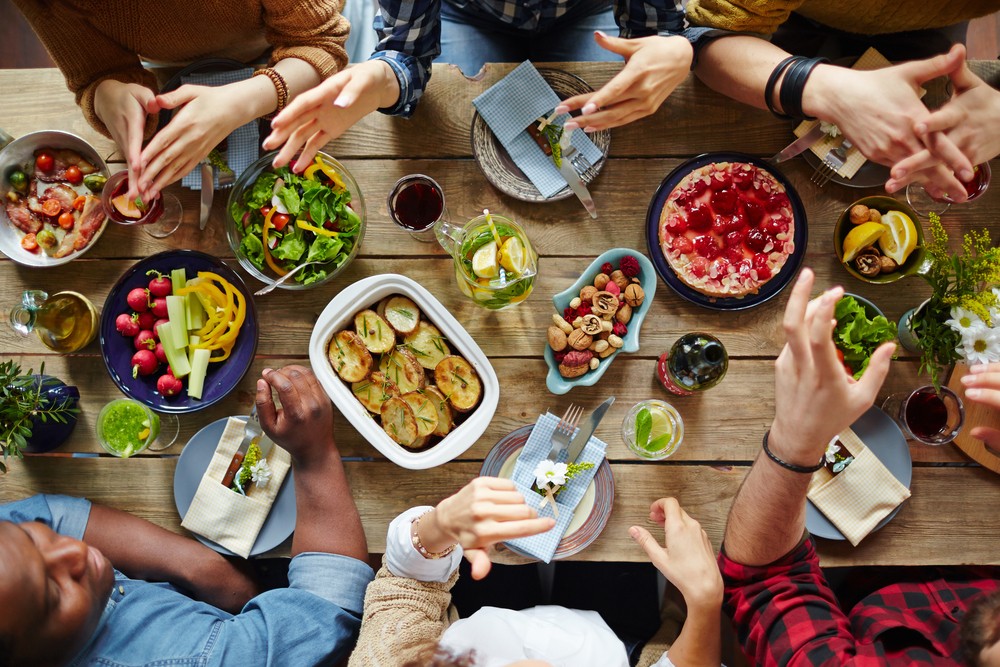Meaningful connection with others is central to good health. I see this truth play out daily in the lives of the clients I serve as a clinician in the field of addiction treatment. When clients feel supported and cared for within the context of loving connections with family, friends, therapists and a peer support group, they reportedly are more likely to find the courage to seek help for an addiction and the motivation to stick with a program of long-term recovery.
In the words of Johann Hari, “The opposite of addiction isn’t sobriety—it’s connection.” In other words, while addiction happens in self-isolation, recovery from drugs and alcohol happens in meaningful relationships.
Yet it would also seem that social isolation is on the rise in the United States. The National Science Foundation reported in its General Social Survey that “unprecedented numbers of Americans are lonely,” in the words of a 2014 article in The American Spectator that summarized the study. With one in five Americans reporting an experience of “persistent loneliness,” the repercussions are nothing short of a “growing public health concern,” The Huffington Post reported in 2015, noting a recently published study that found social isolation could be more detrimental to health than obesity.
Such findings seem to suggest at least two things about meaningful connection with others: first, that this form of intimacy is essential to human flourishing; and second, that it may be becoming a bit of a lost art. Here are some pointers for finding meaningful connection with others and recovering this increasingly lost art—for the sake of greater health and wellbeing.
- Schedule more time each day for connecting with others. Researchers have concluded that longer workdays and longer commutes are one cause of Americans’ greater social disconnection. Why? Because more time at work and commuting to work inevitably mean less time for building relationships with friends, family members and neighbors. Scheduling daily time for the purpose of connecting with others is thus a helpful corrective. What this looks like may vary from one person to another: in some cases, it may be as simple as tweaking one’s daily focus and priorities, so that there are more opportunities for social connection built into one’s day. In other cases, it may require more drastic lifestyle changes that reduce one’s commute or work hours, thereby freeing up time for more meaningful interactions.
- Share more meals with family and/or friends each week. The sharing of a meal has long been regarded (in many cultures) as a token of friendship and meaningful human connection. The Mexican-American labor leader and civil rights activist, Cesar Chavez, was once quoted as saying that “If you really want to make a friend, go to someone’s house and eat with him … the people who give you their food give you their heart.” Whether you live alone, with roommates or with immediate family members, everyone needs to eat—so why not use that same time to cultivate deeper relationships with others?
- Try to have more face-to-face communications with colleagues (and, if you work remotely, opt for phone calls over email when appropriate). Email and smartphones have given us more productivity and faster speed of communication, but sometimes at the expense of face-to-face interactions that remind us of the humanity of the person on the other end. In other words, sometimes the quicker, more productive way to get something done at work isn’t what is best for healthy human connection. Walking across the hall to knock on a colleague’s door and invite their feedback on a project may take more time and effort than firing off an email—but can also be a worthwhile investment, insofar as it deepens a sense of relational belonging and collegiality at work.
- Join the “Just Say Hello” campaign. First started by Dr. Sanjay Gupta and Oprah Winfrey, the effort encourages Americans to be more intentional in seeking daily face-to-face connections with one another, whatever that might look like. One example might be saying “hello” to a stranger in the grocery line; another might be using face-to-face social media technology, like Skype, as the means of interacting with family and friends.
- Practice empathy. Simply put, empathy is the ability to understand what another person is thinking or feeling—so it follows that meaningful human connection hinges upon a capacity for empathy. Empathy is thankfully something that to a degree can be learned with practice. These “Six Habits of Highly Empathic People” from the University of Berkeley’s Greater Good Science Center are a helpful starting place. Among them? The act of “listening up and opening up.”
- Get involved in a social or religious cause you are passionate about. If you are in recovery, this may mean participating regularly in a local 12-step group and becoming an advocate of greater public awareness regarding addiction. For others, this may mean participating in a mass protest on behalf of a good cause they are passionate about, or getting involved in a local church or particular faith tradition. Your passion and purpose can lead you to others with the same passion and purpose, and in this sense, are a natural outlet for more meaningful connections with others.
Related: 5 Ways to Reach Out to Others During a Personal Crisis
This post was written by Candice Rasa, the clinical director of Beach House Center for Recovery, a drug and alcohol addiction rehabilitation center in Juno Beach, Florida. With more than 10 years of experience in the mental health and substance arena, Candice supports healing in the clients she serves from a perspective of spirituality and alternative Eastern methods.
Originally posted on February 13, 2017 @ 8:30 am




